
Has Jesus Been Exaggerated?
Many people think Jesus was real, but that his followers exaggerated his identity. Here are three reasons why we can trust the biblical…

Many people think Jesus was real, but that his followers exaggerated his identity. Here are three reasons why we can trust the biblical…

We all seek purpose and fulfillment – this talk explores how true and lasting satisfaction can be found through faith in Jesus.

In a world where we see so much suffering, what reasons are there for hope?

Christians have been responsible for both good and evil throughout history - how can we accurately assess Christianity in light of this?

The belief that Jesus rose from the dead is central to Christianity. But how can anyone believe it really happened?

Is the Bible just a book written by men, for men, reflecting the prejudices of a different time?

The Jewish Bible contains over 100 promises about an exceptional person who would come to save the world. But what were the chances that…

Many people today doubt Jesus was a real person. Here are 8 ancient non-biblical sources that provide evidence of his existence.

If Jesus really rose, it changes everything. Here are some great reasons to believe the resurrection actually happened.
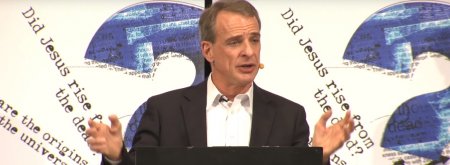
This documentary contains never-before-seen interviews with attendees and participants from the 2011 Reasonable Faith Tour.

Oxford professors John Lennox and Peter Atkins discuss whether we can answer all life's questions using the scientific method.

Christians claim Jesus rose from the dead; why should we care whether it's true or not?

Many people dismiss the resurrection as scientifically impossible. This video offers reasons to think again.

Jesus lived and died two thousand years ago. How much can we really about what really happened so long ago?

Are claims that Jesus rose from the dead simply legends that were made up hundreds of years after he died?

It's often claimed that Jesus' followers borrowed existing pagan beliefs about resurrection. Is that true?

How can we know that Jesus really did die on the cross?

The first disciples claimed that Jesus had risen from the dead. But is it possible that such stories are a deliberate deception?

Is it possible that the accounts of the resurrection are simply the result of hallucinations brought on by grief?

Was Jesus' tomb really empty, or was this just a story made up years later?

What should we make of claims that differences in the Gospel accounts mean they can't be trusted?

In this video, five experts who are convinced that Jesus rose from the dead share how it has changed their lives.

A helpful talk exploring practical ways to share Christ in university contexts.

Four implications of 1 Peter 3:15 that will help you stand up and speak out about Jesus.

This video describes how the geographical descriptions in the New Testament Gospels demonstrate their reliability.

A short suggestion on how to respond to un-evidenced assertions – at college, university or anywhere else...

A short video outlining some of the effects of pornography, based on academic research.

Part 1 of a video series examining why God allows suffering gives the personal stories of the contributors.

Part 2 of a video series examining why God allows suffering suggests possible answers that can be offered.

Part 3 of a video series examining why God allows suffering describes some personal responses to suffering.

Part 4 of a video series examining why God allows suffering looks at "the hardest question", the suffering of children.

William Lane Craig responds to Stephen Hawking's claim that cosmology is "a religion for intelligent atheists".

Does the Bible condone slavery – at the very least by not condemning it? This lecture examines some of the issues we need to consider.

Are the New Testament books an arbitrary or personal selection of what was available? Or is there more to it than that?

Why the so-called "Gospel of Jesus' Wife" is a modern forgery.
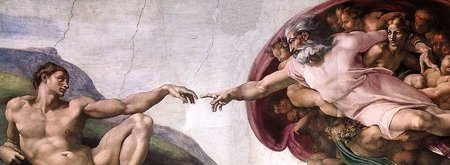
Scientism says that science is the source of all our knowledge. Does this make sense or are there other sources for what we can know?

Peter Byrom explains how apologetics enabled him to see that Christian belief was reasonable and needed a response.

Responding to the question of whether the existence of Hell means that God cannot be a God of love.

Examining the problem of suffering first as an intellectual question and then as an emotional and visceral issue.

Considering the question of whether belief in God lacks the evidence to support it - and why arguments on their own are not enough.

Are God and science necessarily in competition? Does science fit better with Christian belief or with atheism?

Why are Christians so hypocritical, nasty & judgmental? A response to one of the most common objections to Christianity.

How Christian apologetics has used science in its response to the claims of the New Atheists. Boyle Lecture 2014.

This talk considers the difficult issue of Hell - what it is and how a loving God can send anyone there.

This talk explains why the claim that Jesus was no more than a moral teacher doesn't account for the evidence about him.

We all know there's lots of suffering in the world. If there is a God why doesn't he do anything about it? Doesn't he care? Or is he…

Adrian Holloway examines the question of how sure we can be that Jesus really rose from the dead.
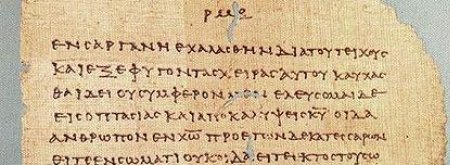
Adrian Holloway tackles the question of whether we can trust what we read in the New Testament or should dismiss it as unsubstantiated myth.

Once we've got at the facts behind the myths about Jesus, this final video considers what difference he makes to us today.

This video considers how long it took before Jesus's first followers came to believe that he was the Son of God.

Did Jesus claim or imply that he was anything more than a prophet? Or did his followers transform him into the Son of God many years later?

Are the Gospels full of contradictions? What would have been seen as normal standards of trustworthy historical writing at that time?

Did the early Christian communities apply Jesus's teaching to the problems they faced or alter the facts to fit their agendas?

Can we know who wrote the Gospels? This video examines whether there is any evidence to support the traditional authors.

In this video, Richard Bauckham considers whether we can know who were the main witnesses behind the Gospel accounts of Jesus's life.

Do the Gospels give us any indication that they are using eyewitness testimony? Richard Bauckham examines some of the minor characters in…

Were the Gospel accounts based on the testimony of eyewitnesses who were still alive when the Gospels were written?

The way the Gospel accounts use the right names for people shows that they were about real people, based on reliable information.

The way the Gospel accounts use correct place names shows that they were based on reliable information from first hand testimony.

This video describes the discovery of the earliest copy of part of John's Gospel, the 'John Rylands Fragment'.

Were the Gospel accounts corrupted as they were passed on? Was there any way to prevent this happening?

How big are the differences between the hand-written copies of the Gospels' accounts of Jesus? Do these undermine what we can know about…

Can we be confident that we have the original text of the Gospels? How does it compare to other ancient documents?

How many hand-written copies of the Gospel accounts are there? What does this reveal about possible mistakes?

This video examines the historical evidence that Jesus performed miracles.

This video considers whether we can dismiss the accounts of Jesus's life simply because they describe miracles.

This video examines the historical evidence for the life of Jesus, including discussion of the non-biblical evidence.

'God: new evidence' is a series of six videos exploring how cosmic fine-tuning points towards the reality of a creator God. Various…

Richard Cunningham interviews William Lane Craig on the 50th anniversary of the death of C.S. Lewis. The interview broadens from C.S. Lewis…
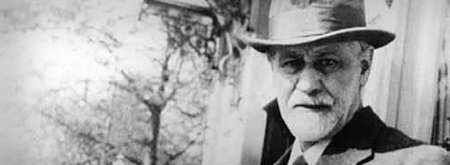
"You would think that wouldn't you?" By way of Freud's Father complex and Dawkins' memes, Melvin Tinker examines how C.S. Lewis might…

Jesus for Sceptics is a book written for those who are sceptical about Jesus but are open to considering the evidence about him.

It’s no bad thing to be sceptical. It saves you taking on board a load of rubbish. But by the same token it is no bad thing to revoke your…

There is perhaps no area of Christian belief which is treated with such scorn by sceptics as the claim that Jesus was raised from the dead.

Why is there a cross in every church and around many a neck?

The central conviction of a Christian is that Jesus was not only human but shared the nature of God.

Nobody who has seriously examined the evidence can doubt that the four Gospels were written in the first century AD.

If someone were to claim that Julius Caesar or Alexander the Great never lived, you would think them crazy. Such an idea never crosses…

We live in a sceptical age. We are sceptical about politics, so millions do not vote. Sceptical about the police, apparently ridden with…

This talk is based on Alister McGrath's biography of C.S. Lewis.

Peter S. Williams chairs a discussion with William Lane Craig, John Lennox, Peter J. Williams and Gary R. Habermas.

This talk addresses the challenges faced by the UK Church, such as Secularism and Islam, arguing for the necessity of effective apologetics.

This talk looks at recent developments the resurrection through established facts that even critical scholars generally accept.

This talk challenges the New Atheist interpretations and condemnation of the Old Testament, including the destruction of the Canaanites.

John Lennox delivers his critique of Stephen Hawking's arguments in The Grand Design and explains why, despite its media hype, neither God…

William Lane Craig delivers his critique of Richard Dawkins' objections to arguments for the existence of God, followed by questions and…
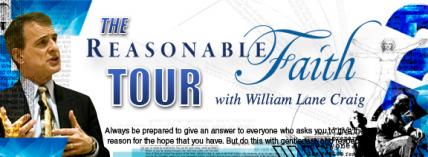
Bill Craig gives a lecture on whether we need a belief in God to be good.
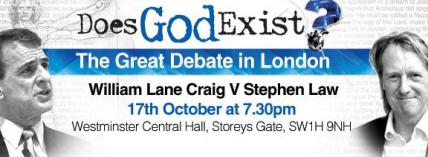
This was the first event of The UK Reasonable Faith Tour 2011 and took place at Westminster Central Hall, London on 17 October 2011 in…

Some New Atheists argue that belief in God is as sensible as belief in a Flying Spaghetti Monster. Greg explains why this is not the case.

During the 2007 Reasonable Faith Tour, Professor William Lane Craig debated Andrew Pyle at Bristol University on the topic "Does the…

William Lane Craig debates whether God is a delusion with Professor Mike Begon.

Melvyn Bragg, who says he is not religious himself, provides an interesting rebuttal of some of the arguments made against Christianity,…

William Lane Craig debates the existence of God with Peter Atkins.

Dr Craig presents seven arguments for the existence of God.

William Lane Craig sets out the historical and Biblical evidence that leads to the conclusion that Jesus Christ rose from the dead.

William Lane Craig and Peter S.Williams debate with Arif Ahmed and Andrew Copson at the Cambridge Union Society.

William Lane Craig debates the existence of God with Professor of Philosophy Peter Millican.

William Lane Craig responds in a public lecture to the claims in Stephen Hawking's recent book The Grand Design.

After Bill Craig's lecture at Imperial College on The Reasonable Faith Tour, he was interviewed by the student television station, stoictv.…

Straight after the Reasonable Faith Tour, Bill Craig attended The Southern Evangelical Seminary's 2011 National Conference on Christian…
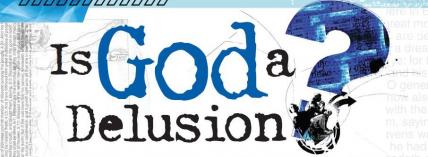
Bill Craig addresses the central arguments of Richard Dawkins' 'The God Delusion'.

Bill Craig discusses the oscillating universe model with a group of students.

Is belief in Christianity and God like believing in the tooth fairy? Or are there rational grounds that justify the beliefs of Christians?

This fascinating lecture points out the details which show that the New Testament Gospels must have been based on eyewitness accounts.

A brief summary of the biblical evidence for the resurrection of Jesus.

Evidence in the Talmud for the crucifixion of Jesus.

What does the oldest fragment of the New Testament tell us?

Four part video series on the problem of suffering.